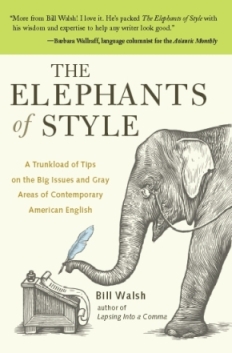- HOME
- INTRO TO THE FORUM
- USE AND MISUSE
- BADLY WRITTEN, BADLY SPOKEN
- GETTING
TO KNOW ENGLISH - PREPARING FOR ENGLISH PROFICIENCY TESTS
- GOING DEEPER INTO ENGLISH
- YOU ASKED ME THIS QUESTION
- EDUCATION AND TEACHING FORUM
- ADVICE AND DISSENT
- MY MEDIA ENGLISH WATCH
- STUDENTS' SOUNDING BOARD
- LANGUAGE HUMOR AT ITS FINEST
- THE LOUNGE
- NOTABLE WORKS BY OUR VERY OWN
- ESSAYS BY JOSE CARILLO
- Long Noun Forms Make Sentences Exasperatingly Difficult To Grasp
- Good Conversationalists Phrase Their Tag Questions With Finesse
- The Pronoun “None” Can Mean Either “Not One” Or “Not Any”
- A Rather Curious State Of Affairs In The Grammar Of “Do”-Questions
- Why I Consistently Use The Serial Comma
- Misuse Of “Lie” And “Lay” Punctures Many Writers’ Command Of English
- ABOUT JOSE CARILLO
- READINGS ABOUT LANGUAGE
- TIME OUT FROM ENGLISH GRAMMAR
- NEWS AND COMMENTARY
- BOOKSHOP
- ARCHIVES
Click here to recommend us!
READINGS IN LANGUAGE
This section features links to interesting, instructive, or thought-provoking readings about the English language and related disciplines. The selections could be anywhere from light and humorous to serious and scholarly, and they range widely from the reading, writing, listening, and speaking disciplines to the teaching and learning of English.
A style book as “insurance policy against tangled English syntax”
When an aspiring writer gains enough mastery of English grammar and usage, he or she quite naturally becomes anxious to develop a distinctive way of expressing himself or herself in writing. A writer’s personal style is supposed to develop largely on its own accord, of course, but the process can be hastened by a purposive study of the various elements of style and how successful writers and editors have put them to good use in pursuing the writing craft.
An often recommended reading on style for would-be writers is Strunk and White’s The Elements of Style, which deals largely with the nuts-and-bolts aspects of using the English language along with a latter-day add-on chapter on style. In 2004, the English-writing style literature was joined by Bill Walsh’s The Elephants of Style (McGraw-Hill, 228 pages), a book whose title is obviously a playful tribute to its eminent predecessor in the style genre.

The Elephants of Style—the word “elephants” is Welsh’s figurative reference to the most important, frequently confused elements of good writing—takes a more contemporary and much deeper look into the basics of style. It playfully dispenses information and advice on correct spelling, grammar, word usage and punctuation; formatting for consistency and clarity; how and why major publications differ in basic spelling, capitalization, and punctuation; the need for empathy between writers and their editors; and various other aspects of language from the parts of speech and metaphors to language obfuscation and plagiarism.
Says writer Sarah Reaves White in a review of the book for WritersWrite.com: “The Elephants of Style belongs on a writer’s bookshelf as an insurance policy against tangled syntax, meaningless terms and the varied assaults on intelligent communication that threaten the language that we share with the world.”
Read an interview of Bill Walsh in the WhichEnglish.com website now!
Read Sarah Reaves White’s review of The Elephants of Style in the ReadersRead website now!
ABOUT THE AUTHOR:
Bill Walsh is the copy chief of the national desk at The Washington Post, where he has worked since 1997. He speaks on copy editing and is a regular presenter at annual conferences of the American Copy Editors Society. His first book is Lapsing into a Comma: A Curmudgeon's Guide to the Many Things That Can Go Wrong in Print—and How To Avoid Them.
OTHER INTERESTING READINGS:
In “When words die,” an article he wrote for the August 29, 2011 issue of the National Post, Robert Fulford argues that online acronyms like “FWIW” for “for what’s it’s worth” may gain temporary currency in usage, but it can’t evolve into one of those abbreviations you use in conversation as a sort of pseudo-word, thus becoming worthy of inclusion in the English lexicon. On the other hand, he advocates the saving of endangered words like “forsooth” that are part of our literary legacy. “Perhaps we need a system of adopting words to keep them safe and well, the way people adopt favourite stretches of highway,” he says. “We would sign up, promise to use our chosen words as often as possible and of course object when they are misused or threatened with abandonment.”
Read Robert Fulford’s “When words die” in the National Post now!
In “Falser Words Were Never Spoken,” an article he wrote for the August 29, 2011 issue of The New York Times, novelist Brian Morton laments that bogus quotations from famous people—the original tweaked and massaged such that both their syntax and subtlety are lost—have become a bane to our treasury of memorable sayings. “Henry James, George Eliot, Picasso—all of them are being kept alive in popular culture through pithy, cheery sayings they never actually said,” he says, arguing that the wisdom of the great thinkers are being recast in the shape of our illusions.
Read Brian Morton’s “Falser Words Were Never Spoken” in The New York Times now!
Click to read comments or post a comment
View the complete list of postings in this section
(requires registration to post)







